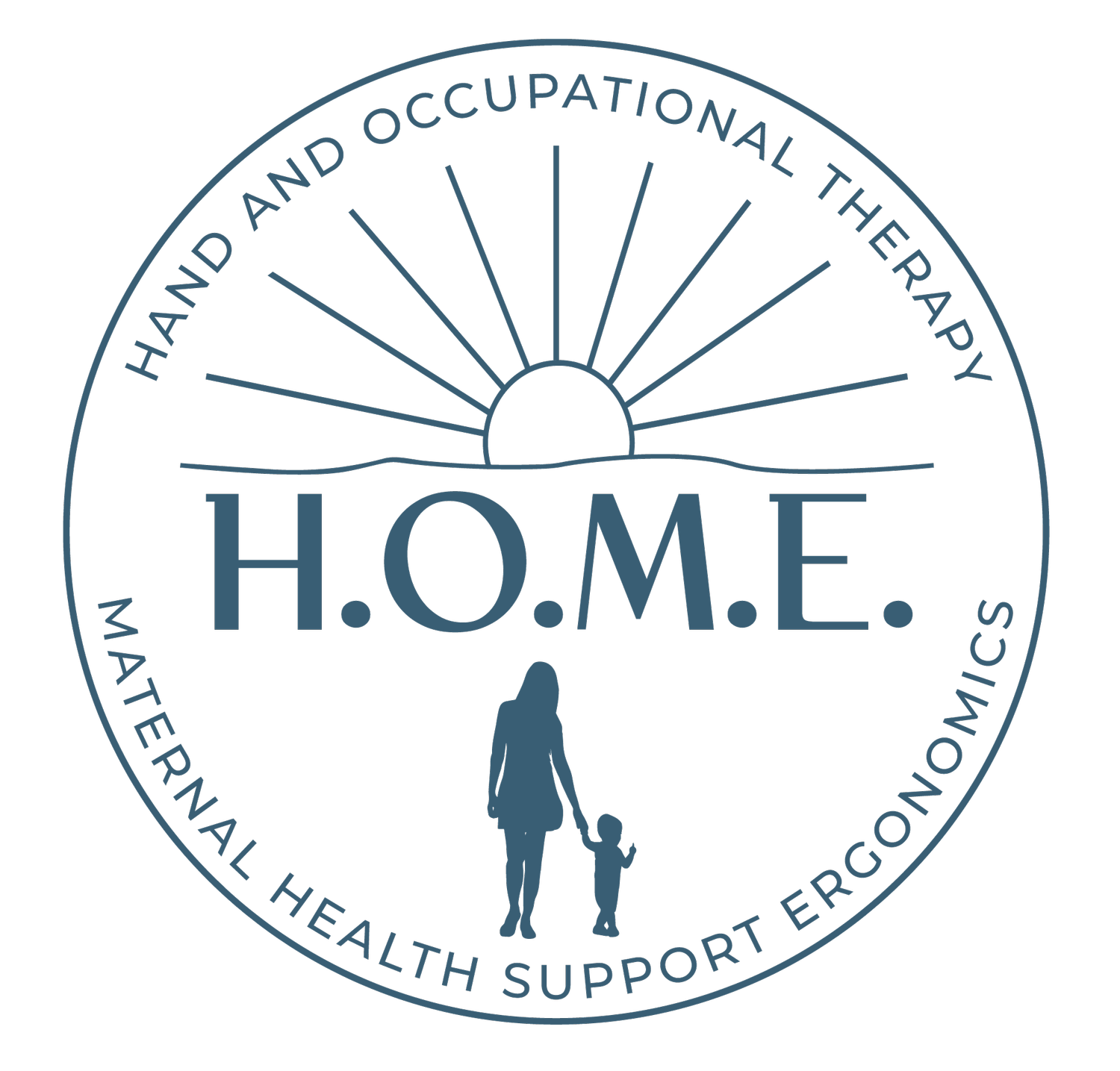
Hand and
Occupational therapy
Are you experiencing pain or tension in your wrists or arms? Do you think you have “Mommy wrist" or carpal tunnel syndrome? Motherhood is hard enough as it is. Having an injury makes it even harder. If you don’t have the time, freedom, or energy to go to a clinic I will bring traditional outpatient hand / occupational therapy to you in the comfort of your home. By receiving hand therapy at home, you eliminate the complicated logistics of figuring out timing with the baby’s schedule and the stress of potentially needing to bring baby with you vs. arrange childcare. Depending on how your body is recovering from birth, you also will have the liberty to position yourself more comfortably for our treatment sessions. Treatment includes manual therapy, therapeutic activities and exercises, recommendations for braces or other supports, client education of anatomy, risk factors, and suggestions for activity modification. Areas of the body addressed: shoulder, elbow, wrist or hand. You may receive occupational therapy services with a doctor’s prescription, or without a prescription (referred to as Direct Access) as per NY State Assembly Bill A3202C which went into effect on March 21, 2023. For questions about Direct Access, you may contact me.
Maternal health support
Honestly, how are you feeling today? Each day (each hour) can feel different. From pregnancy to postpartum, becoming a mother is life changing. During pregnancy, you may feel overwhelmed planning for baby or you may struggle to prioritize your to do list. Then once baby arrives, how do you adjust to your new role and establish a new routine? One moment you feel super confident and the next, you question every detail or decision you make. Perhaps you’re struggling to find time to shower, eat a proper meal, or sneak in some exercise, or you’re having issues with your sleep. Together we can come up with an achievable and actionable plan to restore more balance in your new life.
The American College of Obstetricians and Gynecologists acknowledges that postpartum care often is fragmented among maternal and pediatric health care providers…Most women in the United States must independently navigate the postpartum transition until the traditional postpartum visit (4–6 weeks after delivery) …Postpartum care should become an ongoing process, rather than a single encounter, with services and support tailored to each woman’s individual needs.[source: Optimizing Postpartum Care | ACOG]
Occupational therapists use a holistic biopsychosocial approach through everyday life activities (occupations) to promote health, well-being, and ability to participate in meaningful activities in your life. OTs are well positioned to support new mothers as they adjust to this unique stage of life. Together, we can ease your transition into motherhood by developing a plan that feels achievable, meaningful, and unique to you.
Ergonomics
Taking care of a newborn and growing human is physically demanding. A number of ergonomic risk factors are associated with child rearing tasks. Some examples:
Forceful exertion Lifting/carrying baby and baby gear, pushing a stroller
Repetition Burping baby, massaging your breasts for lactation, buttoning pajamas
Contact stress Multiple hours a day of baby against your body
Postural factors Leaning over to pick up baby toys, twisting while lifting, changing a diaper, giving baby a bath
I can work with you before and after the baby arrives, to assist you with setting up the environment where you’ll be spending the early weeks with the goal of protecting your body and helping you move better. Some examples of areas we may address: if you’re breastfeeding, I can help to figure out a position that will increase your comfort and protect your joints. For bathing baby, I can help you figure out the best location and setup of equipment and supplies to help conserve energy and minimize awkward postures while you give baby a bath.
